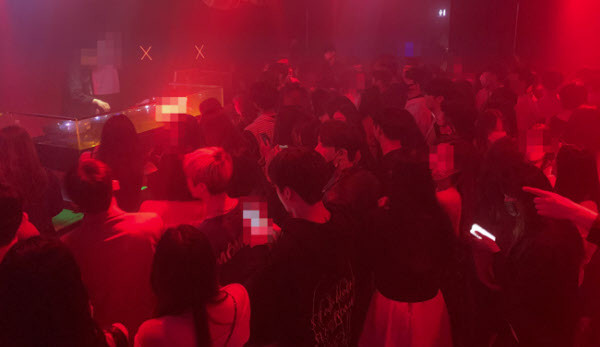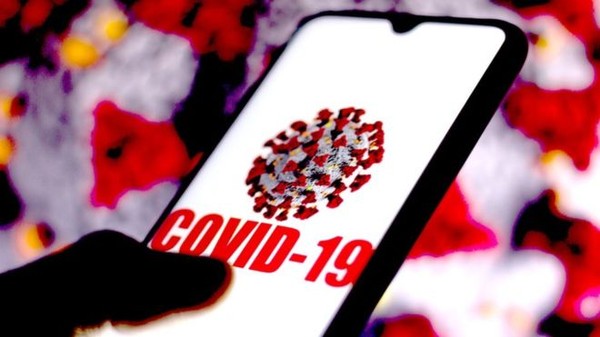The recent spike in COVID-19 cases linked to nightclubs in Seoul raised two important issues: the consequences of inevitably reopening the economy, and the question of protecting individual privacy in the midst of a pandemic. These problems are not limited to South Korea; they also pose worldwide implications as countries struggle to fight the coronavirus pandemic. How should governments approach the conundrum of balancing virus prevention against supporting the economy? How is our idea of privacy being challenged by this unprecedented disaster?
The Post-Corona Economy
By Jehyuk Cho Junior Staff Reporter
With South Korea’s COVID-19 outbreak appearing to be fully under control, social distancing measures were eased and citizens seem eager to resume their previous lives. Gyms, restaurants, and cafes slowly attracted more customers, providing a glimmer of hope for the recovery of the Korean economy. However, recent circumstances very clearly suggest that the government’s decision to ease coronavirus measures might have been too hasty. Streets are getting more crowded than expected, and fewer people are wearing masks. This has led to a second major wave of COVID-19 spread in Korea, named the “Itaewon cluster”.

The increase in the number of people partying in Itaewon has led to 219 cases as of writing. From the photos and videos released by the police, many of the partygoers were seen not properly wearing their masks, and the lack of good ventilation in underground nightclubs, restaurants, and karaoke rooms most likely led to airborne transmission. So far, at least 65,000 people linked to the Itaewon cluster have been found and are to be tested for COVID-19, and the Korea Centers for Disease Control and Prevention is still tracing the routes of these patients in order to disinfect the visited places and to find more potential carriers.
Should the owners of clubs and restaurants be blamed for reopening despite the global virus pandemic? And should the partygoers be blamed for voluntarily partying in crowded areas without masks and proper observance of virus prevention methods? The answer is both yes and no.
Yes, the owners should have been more strict in reopening their stores and implemented more virus safeguarding measures, such as not allowing people without masks to enter. Moreover, partygoers should have acted with more caution, considering that they are purposefully exposing themselves to more danger. Overall, their actions were insensitive during this pandemic.
But no, the owners are not fully to blame, because it is their right to manage their businesses. As the shops resumed their service, they attracted consumers and generated a positive flow of finances in the economy. Especially since South Korea’s economy is predicted to decline this year, people spending money is crucial to reviving the economy of the country despite the dangers of the virus.
Without a doubt, the economy has to be reopened at some point. Though few are fortunate enough to be able to sustain their jobs while working from home, the majority will be in financial difficulties if the virus continues to freeze the economy. Currently, major stock markets such as Dow Jones and FTSE have dropped 18.5% and 24.5% respectively, and more than 30 million people in the US have filed for unemployment benefits. Oil prices have dropped sharply, while travel bans continue to choke the flight and tourism industries. Scenarios by United Nations World Tourism Organizations predict declines of 58 to 78%, which translates to 100 to 120 million tourism occupations at risk.
From the uncertain nature of the virus, it is nearly impossible to strike a good balance between preventing virus transmission and maintaining a healthy economy. While the US is one of the nations that has taken the biggest hit from COVID-19, the government is lifting bans to allow shops to reopen. In Europe, countries including Spain, Germany, and France are also slowly reducing the severity of social distancing rules, along with easing travel bans. On the contrary, Brazil is forcing 1.3 million people to stay indoors. Everyone is forbidden from going outside except to buy groceries and medical supplies. Although these measures do prevent the further spread of the virus, the Brazilian Economy Minister Paulo Guedes claims that the country may face economic collapse within a month, leading to food shortages and social disorder. The International Monetary Fund forecasts that Brazil’s economy will fall sharply by 5.3% this year.
Governments cannot continue to sacrifice their economy in order to battle COVID-19. But does that call for an immediate lifting of all virus containment methods across the world? Definitely not. As seen from the Itaewon cluster, it is extremely difficult to find the right timing. As the pandemic rages on, governments are faced with challenges without answers.
An Eye on Privacy
By Dong Min Kim Staff Reporter
South Korea is praised globally for its system of mass testing and contact-tracing that contributed to its success in containing the first wave of coronavirus. The government legally utilizes cell phone data, surveillance footage, and credit card records to track the path of the infected. Patient information — including gender, age, and travel history — is released to the public to alert people who may have been exposed to the virus. While such methods effectively contained the outbreak and built the trust of the public, the amount of information that should be released and made accessible nevertheless remains a controversial issue.

This concern resurfaced when a new virus cluster was found to be linked to nightclubs in Itaewon, a nightlife district in Seoul. When Kukmin Ilbo, a South Korean media outlet, reported that a coronavirus patient visited a gay club in Itaewon, homophobic comments were hurled online against gays who visited the club, as well as against the LGBT community in general. This unnecessary disclosure of sexual orientation was criticized not only for violating the broadcasting guidelines on human rights but also for effectively discouraging people from getting tested in the fear of being “outed” to family members and acquaintances.
Information disclosure of this nature leaves little room for debate; private information unrelated to the containment of coronavirus should remain private. To what extent the release of information is necessary, however, remains uncertain. While it varies from district to district, South Korea’s coronavirus alerts include the locations that patients have visited and the corresponding time of visit. Sharing such details is considered necessary to alert people who were in the same place and could have been potentially infected, and is regarded as a way of being transparent in a time of crisis. Many people have even been commenting on district websites, requesting more information on the patients, such as their apartment numbers. While no personally identifiable information is released, the existing information is enough to make people speculate about, and even ridicule, those infected. The public’s desire to locate and stigmatize patients does more harm than good to the patients’ mental health and for the containment of the outbreak.
Is the side effect worse than the cure? For now, public consensus deems the opposite; while individual privacy is an important right, few would consider it absolute in life-or-death situations, such as in a pandemic. South Korea is only one of the many countries working to balance the right to privacy and government efforts to fight against coronavirus. The Israeli government is using a cache of mobile phone data intended for counterterrorism operations to identify people who may have contracted the virus. Moscow deployed facial-recognition technology to catch a woman who broke quarantine. Authorities in Italy are accessing location data on mobile phones to analyze the effectiveness of citywide lockdowns. Beijing announced that citizens who are caught hiding coronavirus symptoms will have credit points deducted in the country’s social credit system.
As these cases show, countries are utilizing — and experimenting with — different forms of surveillance to help fight the pandemic. While the degree to which these measures infringe on privacy differs greatly from government to government and from culture to culture, one thing remains constant: whatever our current values of privacy are, they are being challenged and altered.
The world will not transform into a 1984-style dystopia, where Big Brother watches your every step. But we must also realize that, more often than not, privacy and health are not mutually exclusive, but rather inalienable rights that we all deserve without compromise. Promising developments exist. Current protocols utilize encryption and localized network technology to allow contact-tracing without revealing personal identities or locations. Australia’s parliament passed a new law to jail people who access data in the government’s coronavirus tracking app without authorization. These instances show that the technologies and legislations currently being used to help contain the spread of coronavirus can also be used to safeguard individual privacy. All governments, from democracies to authoritarian regimes, will be put to the test as the pandemic puts new powers in their hands and new responsibilities on their shoulders. Citizens will also face the challenge of respecting each other’s privacy and ensuring that surveillance also goes from people to government. Keeping a close eye on the changes in privacy laws and technologies during the coronavirus crisis will be half the solution to the problems that are bound to surface in the future.

